Notes from an Adventure Capitalist: Singapore
Singapore is famous for its capitalism. In some ways, the state itself has grown and continues to function as a kind of corporation, with citizens playing the role of employees subject to strict policies and the role of shareholders, benefiting from the success and prudence of management.
 Separated from Malaysia in 1965, perennial statesman Lee Kwan Yew oversaw its rise from an underdeveloped colonial outpost to a first world Asian tiger. It ranks 23 in the 2009 Human Development Index, above Hong Kong, South Korea, and Greece. The de facto financial center of Southeast Asia, Singapore boasts enviably high rule of law, investment in education, and shrewd policies attracting the globally educated to immigrate.
Separated from Malaysia in 1965, perennial statesman Lee Kwan Yew oversaw its rise from an underdeveloped colonial outpost to a first world Asian tiger. It ranks 23 in the 2009 Human Development Index, above Hong Kong, South Korea, and Greece. The de facto financial center of Southeast Asia, Singapore boasts enviably high rule of law, investment in education, and shrewd policies attracting the globally educated to immigrate.
A friend of AsiaWheeling and Harvard graduate plans to move to Singapore before the year is out. Because of his high caliber education, he can receive a passport to the nation-state within two years. With tax and regulatory concessions available for industries the government wishes to encourage, a growing number of alternative investment managers and global financial institutions are migrating their legal entities, their employees, and their (albeit low) tax dollars to Singapore.
Citizens of Singapore are healthy, courteous, and enjoy much greater income equality than Hong Kong or New York, alleviating many social class pressures. A businessman in Hong Kong once told me, “If you ask a taxi driver in Hong Kong how big his apartment is, he’ll tell you it’s 389.27 square feet exactly. If you ask a Singaporean taxi driver, he’ll tell you it’s somewhere around 400 square feet.” Singapore’s social and economic policies have resulted in this relaxed, non-competitive attitude, which encourages community involvement and a sense of social responsibility.
On the MRT in Singapore, we saw a young man in a fitted baseball cap volunteer his seat when an elderly man boarded the train. On the Tokyo subway, even the priority seats for elderly, disabled, and pregnant are filled with dozing salarymen during rush hours. Singapore smacks of a utopia.
But Singapore has a dark side. It’s a place where drug addicts are caned, rounds of layoffs can happen under the guise of a fire drill, and the government’s tactic for squelching dissidents is to sue them for sedition, bankrupting them with legal fees. Multicultural harmony is advertised and prided, though the city still suffers from racial divisions and sports neighborhoods that double as ethnic enclaves.
 Road crews and other blue collar jobs appear to be dominated by the Tamils, whose script is invariably last on the multilingual municipal signs. Singapore’s multicultural composition can also spark conflict. For Chinese New Year, McDonald’s released a set of the 12 zodiac doraemon, but had replaced the pig with a doraemon holding a heart.  Chinese New Year happened to fall on Valentine’s Day, and the pig was certainly not Halal. In an attempt not to alienate their Muslim customers, they outraged the Chinese community, and began producing a new toy zodiac pig, and posted the apology below.
Road crews and other blue collar jobs appear to be dominated by the Tamils, whose script is invariably last on the multilingual municipal signs. Singapore’s multicultural composition can also spark conflict. For Chinese New Year, McDonald’s released a set of the 12 zodiac doraemon, but had replaced the pig with a doraemon holding a heart.  Chinese New Year happened to fall on Valentine’s Day, and the pig was certainly not Halal. In an attempt not to alienate their Muslim customers, they outraged the Chinese community, and began producing a new toy zodiac pig, and posted the apology below.
Prostitution finds its way into a legal gray area, with the odd-number buildings of certain districts designated as mid-rise brothel/bar complexes. Karaoke bars of ill-repute lubricate business deals by allowing expenses to be reimbursed by what appears to be a shockingly high bar tab.
With punishments for petty crimes so high, desperation seems to reign, as human nature enjoys a bit of sin. Singapore’s underbelly proves that the city is not fully the nursery rhyme it purports to be. Dig deep enough and you’ll find plenty that smacks of a dystopia.
 Many of those to whom we explained the experiment of AsiaWheeling admitted they would have loved to have engaged in such a project in their youth, but even with the means, it was simply not in their consciousness. The education system, which churns out highly analytical graduates, coupled with the mandatory military conscription, which teaches hierarchy and teamwork, somehow misses out on equally developing creativity.
Many of those to whom we explained the experiment of AsiaWheeling admitted they would have loved to have engaged in such a project in their youth, but even with the means, it was simply not in their consciousness. The education system, which churns out highly analytical graduates, coupled with the mandatory military conscription, which teaches hierarchy and teamwork, somehow misses out on equally developing creativity.
Frank Lloyd Wright said, “Give me the luxuries of life, and I will do without the necessities.” In the increasingly interconnected global economy, analytical minds will be the backbone of competitive development. However it will be this analytical firepower, coupled with creativity and passion, that will really define innovation to come. Without developing the creative faculties of its people, Singapore may find itself in an unexpected state of imperfection.
Loading image
Click anywhere to cancel
Image unavailable






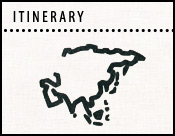
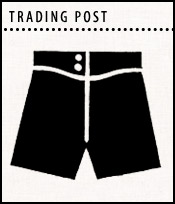
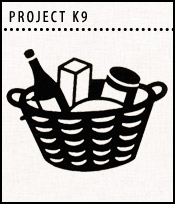
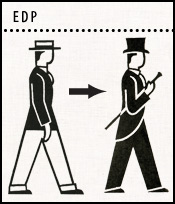

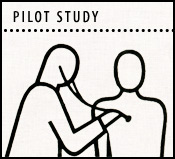
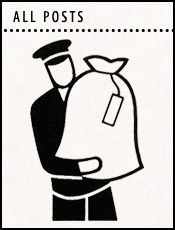





Comments
A truly great post. Hearing about your travels and tribulations is fun, but reporting like that in the blog above really makes me want to pack a bag and explore places like Singapore at length. Safe travels!
Scott, a cogent summary and analysis that really captures the situation in and challenges facing Singapore. You probably know that Singapore is working very hard on producing creative minds and getting creative-types to migrate there. The arts scene in Singapore has really grown in the past decade because of that, or so it seems to this observer. But, about the layoffs story, that particular post you link to doesn’t contain easily verified information and seems suspect because, as you note, Singapore is nothing if not a land that respects rule of law, and the Employment Act won’t allow for such inconsiderate and unacceptable methods of firing people. It seems almost entirely implausible really.
A fascinating and multi-faceted post, Scott. Thanks!